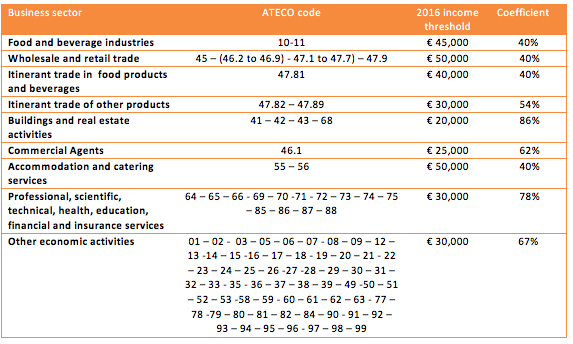Italian Employment Contracts: What Every Employee Should Know
Considering working in Italy, or maybe you’ve just landed a job here. Congratulations! But hold on – before you dive into la dolce vita, let’s talk about the nitty-gritty of Italian employment contracts (contratti di lavoro) keeping in mind the foundational principles of the Italian Civil Code (Codice Civile).
Knowing your rights and what to expect from your employer is essential for a smooth and effective working relationship. That’s why we’ve created this handy guide to walk you through the essentials.
Key Elements of an Italian Employment Contract
An Italian employment contract (contratto di lavoro) is your legal roadmap, defining the terms of your work life. Let’s break down the key components:
| Component | Description |
| Identification of Parties | Full legal names and addresses of both the employee and employer. |
| Start Date (Commencement Date) | The official date when employment begins. |
| Job Description (mansioni) | Detailed outline of the employee’s role, duties, and required skills. |
| Work Location (luogo di lavoro) | Primary work location and any additional work sites. |
| Working Hours (orario di lavoro) | Regular work schedule, including days, hours, and breaks. |
| Paycheck Details (retribuzione) | Gross salary, payment frequency, and any additional compensation (bonuses, benefits). |
| Classification (qualifica) | Employee’s job level and category based on the National Collective Labor Agreement (CCNL). |
| Trial Period (periodo di prova) | Optional period outlining conditions for both the employee and employer. |
| Contract Type (tipologia di contratto) | Specifies the type of contract governing employment (e.g., fixed-term, open-ended). |


Types of Italian Employment Contracts: Choose Your Path
Italy offers a variety of employment contracts to suit different needs and career stages. Finding the one that suits you the best, is your right.
Fixed-Term Contracts (contratto a tempo determinato)
Fixed-term contracts are used for specific projects, seasonal work, or temporary needs where the employer can justify a temporary employment period. These contracts have a defined start and end date, typically ranging from a minimum of 6 months to a maximum of 24 months.
Key Features:
- Duration: Employment lasts for a predetermined period.
- Renewal: Can be renewed under certain conditions, ensuring flexibility for employers needing temporary workforce adjustments.
- Benefits: Employees generally receive pro-rated benefits based on the duration of the contract.
Open-Ended Contracts (contratto a tempo indeterminato)
Open-ended contracts are the most common type in Italy and provide indefinite employment. They continue until either the employer or employee terminates the agreement based on legal or contractual terms. These contracts offer stability and typically include full employment relationships, rights and benefits.
Key Features:
- Duration: Employment continues until terminated by mutual agreement or according to legal provisions.
- Benefits: Includes full employment benefits such as paid leave, health insurance, and retirement contributions.
- Flexibility: Allows for career development and long-term planning for both employer and employee.
Part-Time Contracts (contratti part-time)
Part-time contracts are not a separate type of job contract. It objects to full-time work and must be formalized in writing and draws up a work report with a reduced schedule, i.e. less than 40 hours per week (legal working time) and for periods predefined in advance.
Key Features:
- Reduced Hours: Typically less than full-time hours, often specified in the contract.
- Benefits: Entitled to benefits such as paid leave, health insurance, and bonuses based on the hours worked.
- Flexibility: Offers flexibility for both employers and employees in scheduling and workload.
Apprenticeship Contracts ( contratto di apprendistato )
Apprenticeship contracts are designed to provide young individuals (aged 18 to 29) with a combination of practical work experience and formal education or training. These contracts aim to facilitate the transition from school to work by offering structured learning opportunities.
Key Features:
- Training: Includes on-the-job training combined with formal education or vocational training.
- Duration: The duration of the apprenticeship contract is set between 24 and 72 months and must include a minimum of 120 hours of annual training.
- Support: Employers receive incentives or subsidies for hiring apprentices, encouraging skill development and workforce participation.
Any employee with an apprenticeship contract in Italy has the right to a salary. The sum gradually grows until it equals that of a skilled worker.
Contratto di Formazione-Lavoro (Training and Work Contract)
The Integration Contract, formerly known as Contratto di Formazione-Lavoro (Training and Work Contract), is specifically designed to facilitate the professional integration of young individuals into the workforce in Italy. This type of contract targets individuals aged between 16 and 32 years old.
Key Features:
- Duration: Typically lasts between 12-24 months, making it a fixed-term contract.
- Training: A significant aspect of the Integration Contract is the inclusion of training, which ranges from 20 to 140 hours. This training is aimed at enhancing the employability and skills of the individual.
- Non-Renewable: Unlike some other contracts, the Integration Contract cannot be renewed after its initial term expires.
Collaboration Contract (Collaborazione Coordinata E Continuativa)
The Collaboration Contract (co-co-co contract) is a flexible employment arrangement in Italy that combines aspects of traditional employment and self-employment. Workers have autonomy but lack managerial duties, focusing solely on completing assigned tasks.
Key Features:
- Duration: Workers operate independently, deciding when and how and arrange when to fulfill tasks assigned by the company.
- Benefits: Offers employers cost savings through reduced social security contributions and flexibility in workforce management.
- Worker’s Role: Workers have autonomy but lack managerial duties, focusing solely on completing assigned tasks.
The co-co-co contract balances flexibility for employers with certain protections for workers, though concerns about job security and benefits persist.
Minimum Requirements
While Italy’s work culture is known for its warmth and flexibility, it’s good to know that the law has your back with some baseline protections:
| Requirement | Details |
| Written Contract | All types of employment contracts in Italy must be in writing and clearly outline the terms and conditions of employment. It musy outline your rights and obligations including job title salary responsibilities, etc. |
| Fair Pay | While there is no national minimum wage, many industries have minimum pay rates set by collective agreements. |
| Standard Workweek | The standard workweek is 40 hours, with rules in place for overtime pay and rest periods. |
| Paid Time Off | Italy is family-oriented, so it’s no surprise that paid sick leave and paternity/maternity leave are standard. Take the time you need to care for yourself and your loved ones. |
What comes to termination, if your employment ends, you’re entitled to notice periods (preavviso), giving you time to prepare for your next adventure. Plus, protection against unfair dismissal is in place. Moreover, in Italy if you find yourself unemployed, you might qualify for unemployment benefits (indennità di disoccupazione) to help you get back on your feet.
Termination of Employment Contracts
Saying “arrivederci” isn’t always easy, but sometimes it’s necessary. In Italy, the process is overseen by tight standards designed to safeguard both you and your employee. Here’s what you should know.
- Termination by the Employer
The first case is the termination at the company’s request. This occurs primarily when an employee commits a significant crime, such as theft, fraud, or assault. The contract can be terminated instantly for “just cause” (Giusta Causa).
The company can also request termination for less serious reasons via dismissal for justified reasons (Giustificato Motivo), such as poor performance or economic reasons. Notice periods, which vary based on the employee’s seniority and collective bargaining agreements, must be given. Severance pay is also due.
Notice Periods: The length of the notice period depends on the employee’s seniority and is determined by the National Collective Labor Agreement (CCNL) for their industry. Typically, notice periods range from a few weeks to several months.
- Termination by the Employee
What comes to employees, can resign for any reason, but they must provide the notice period specified in their contract or collective bargaining agreement. Both parties can agree to terminate the contract under mutually agreed terms.
And, of course, if the employment contract is for a fixed term, it automatically terminates at the end of that term unless renewed
To sum up…
Understanding Italian employment contracts is essential for anyone entering the job market in Italy. By knowing your rights and obligations, you can ensure a harmonious and productive work relationship. Whether you’re navigating fixed-term contracts, enjoying the stability of an open-ended contract, or exploring flexible collaboration agreements, being informed empowers you to make the most of your career in Italy.
Would you like to read more about similar subjects? Take a look at our related articles here: Freelancer right in Italy, Mandatory Employee Benefits in Italy and Regularity of service in self-employment.





